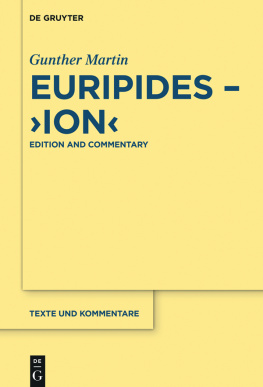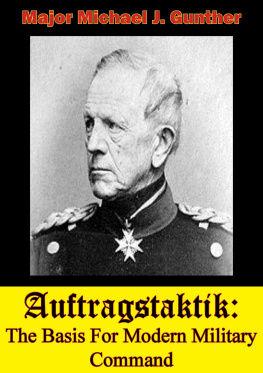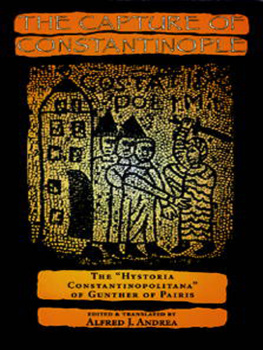
This edition is published by PICKLE PARTNERS PUBLISHINGwww.picklepartnerspublishing.com
To join our mailing list for new titles or for issues with our books picklepublishing@gmail.com
Or on Facebook
Text originally published in 2012 under the same title.
Pickle Partners Publishing 2015, all rights reserved. No part of this publication may be reproduced, stored in a retrieval system or transmitted by any means, electrical, mechanical or otherwise without the written permission of the copyright holder.
Publishers Note
Although in most cases we have retained the Authors original spelling and grammar to authentically reproduce the work of the Author and the original intent of such material, some additional notes and clarifications have been added for the modern readers benefit.
We have also made every effort to include all maps and illustrations of the original edition the limitations of formatting do not allow of including larger maps, we will upload as many of these maps as possible
AUFTRAGSTAKTIK: THE BASIS FOR MODERN MILITARY COMMAND?
By
Major Michael John Gunther, Army
TABLE OF CONTENTS
Contents
TABLE OF CONTENTS
REQUEST FROM THE PUBLISHER
ABSTRACT
Gen. Helmuth von Moltke, the Chief of the Prussian General Staff during the Franco-Prussian War, defined Auftragstaktik as the actions a subordinate took in the absence of orders that supported the senior commanders intent. The use of mission tactics allowed subordinate commanders like Crown Prince Frederick Karl, Gen. Konstantin von Alvensleben, and Gen. Karl von Steinmetz to interpret how best to achieve the commanders intent based upon their understanding of the tactical situation. The Prussian use of decentralized command during the Franco-Prussian War acknowledged the risk inherent in this system of command. Despite what modern military theorists often write, Auftragstaktik and mission command are not synonymous terms. Most authors ignore the historical environment that the Prussian military operated in during the Franco-Prussian War. This study examines the influence of the Prussian concept of Auftragstaktik on the modern US Army notion of mission command as defined within the published doctrine. It utilizes archival records and pertinent published histories from the August 1870 battles on the Franco-Prussian frontier, Moltkes 1869 Instructions for Large Unit Commanders , as well as writings from the 1980s to describe the influence of Prussian system on the modern concept of mission command.
ACRONYMS
ADPArmy Doctrine Pamphlet
ADRPArmy Doctrine Reference Publication
Brig. Gen.Brigadier General
Capt.Captain
Col.Colonel
FMField Manual
Gen.General
Lt.Lieutenant
Lt. Col.Lieutenant Colonel
Lt. Gen.Lieutenant General
Maj.Major
Maj. Gen.Major General
MMWMoltkes Militrische Werke (Moltkes Military Works)
St.Saint
ILLUSTRATIONS
Figure 1.Unified Land Operations
Figure 2.The Mission Command Philosophy
Figure 3.The Operations Process
Figure 4.Moltkes Plan on 1 August 1870
Figure 5.The Battle of Weissenburg
Figure 6.The Battle of Spicheren, Situation at 1700
Figure 7.Moltke Changes the Direction of March, 14-16 August 1870
Figure 8.The Battle of Mars-la-Tour
Figure 9.The Battle of Gravelotte, Situation at 0900
Figure 10.The Battle of Gravelotte, Situation at 2000
Auftragstaktik : The Basis for Modern Military Command?
Gen. Helmuth von Moltke, Chief of the German General Staff {1} from 1857 until his retirement in 1888, often related a story to junior members of his staff that described the essence of the German system of command. Following a battle, Prince Frederick Karl took a major aside and proceeded to reprimand the young officer for a tactical mistake. The major responded that he was following an order issued to him from a superior officer, which constituted the word of the king himself. The prince responded in kind, His Majesty made you a major because he believed you would know when not to obey his orders. {2} The story illustrated the extent to which Germans adopted mission-oriented command during Moltkes tenure, as no less a leader than a Hohenzollern prince informed a subordinate commander that he could disobey orders when the situation called for it. This new system of command, eventually referred to as Auftragstaktik {3} , allowed subordinate leaders independence to interpret the situation and execute actions that fulfilled the commanders intent rather than the letter of the order.
The Prussians, and later the Germans, developed this system of command during the mid-nineteenth century Wars of German Unification. In August 1870, the Prussians defeated Louis-Napoleon Bonapartes Army of the Rhine in a series of battles that eventually contributed to the fall of the French Second Empire. Although French units had several material advantages over the Prussians, their commanders failed to notice a fundamental change in how the Prussians commanded and controlled their units after the 1866 Austro-Prussian War. Prussian commanders had instituted decentralized command and control in the pursuit of a singular military objective. This method of command often resulted in units entering the battle in a haphazard method during the wars early campaigns; however, they ultimately won the battles.
Although the modern German Bundeswehr continues to use Moltkes system of command, other armies have been reluctant to adopt a decentralized approach. The Germans used this method of task-oriented, decentralized command through the first half of World War II; German doctrine used the term Auftragstaktik to describe it. {4} American commanders took notice of it during World War II, but struggled with how best to integrate it into doctrine. In 1986, over one hundred years after Moltke included mission-orders in Prussian military doctrine, the United States Army formally adopted mission-orders in Field Manual (FM) 100-5, Operations. {5} Today, the US Armys mission command principles closely resemble the Prussian General Staffs use of mission tactics at army, corps, and division levels of command during the Franco-Prussian War. As one of the foundations of unified land operations, mission command specifically emphasizes individual initiative within the commanders intent for an operation. {6}
Gen. Helmuth von Moltke, Chief of the Prussian General Staff during the Franco-Prussian War, defined Auftragstaktik as the actions a subordinate took in the absence of orders that supported the senior commanders intent. {7} The use of mission tactics allowed subordinate commanders like Prince Frederick Karl, Gen. Konstantin von Alvensleben, and Gen. Karl von Steinmetz to interpret how best to achieve the commanders intent based upon their understanding of the tactical situation. Furthermore, the Prussian use of Auftragstaktik during the Franco-Prussian War acknowledged both the risk and the opportunity inherent in this method of decentralized command. The commander could accept individual unit and commander failure since all subordinate commanders understood the desired strategic and operational ends. The General Staff reflected after the war that initiative and failure was probably more desirable than caution and inaction. {8} Commanders that failed were rarely relieved as long as their understanding of the directives was sound and their execution vigorous.












